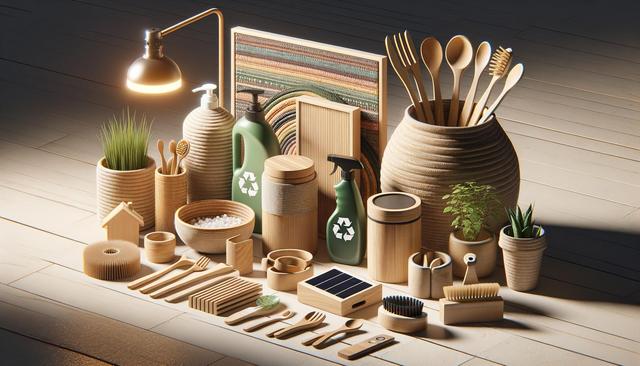
Top Rated Eco-Friendly Home Products for a Greener Lifestyle
Why Eco-Friendly Products Matter
Eco-friendly home products are designed to minimize environmental harm through sustainable materials, energy efficiency, and reduced waste. With growing awareness of climate change and resource depletion, more consumers are choosing sustainable alternatives to traditional household goods. Environmentally conscious products not only help reduce your carbon footprint, but also often offer long-term cost savings and health benefits.
These products are typically made from renewable or recycled materials, and they are manufactured using processes that minimize pollution and conserve resources. For example, bamboo and organic cotton are popular materials in sustainable home goods due to their low environmental impact and biodegradability. Additionally, many eco-friendly items avoid harmful chemicals, making them safer for both people and pets. Choosing these products is a practical way to support a cleaner planet and healthier home.
Energy-Saving Appliances
Switching to energy-efficient appliances is one of the most effective ways to reduce household energy consumption. These appliances are engineered to use less electricity without compromising performance, which can lead to noticeable savings on your utility bills over time. Look for items with recognized energy certifications, which indicate that the product meets high efficiency standards.
Common energy-saving appliances include:
- Refrigerators with inverter technology
- Front-loading washing machines
- Induction cooktops
- LED lighting systems
Beyond the kitchen and laundry room, smart thermostats and programmable lighting can also contribute to energy efficiency. These devices allow you to control your home’s energy use more precisely, reducing waste when rooms are unoccupied or during off-peak hours. Making the switch to energy-efficient appliances not only helps the environment but also makes your home more modern and cost-effective.
Natural and Recycled Home Materials
When it comes to furnishing and decorating your home, the materials used can have a significant environmental impact. Sustainable design emphasizes the use of natural, non-toxic, and recycled materials that are both durable and resource-efficient. Products like reclaimed wood furniture, recycled glass countertops, and natural fiber rugs are popular choices among eco-conscious homeowners.
Some examples of eco-friendly home materials include:
- Recycled aluminum for window frames and fixtures
- Low-VOC (volatile organic compounds) paints and finishes
- Cork or bamboo flooring
- Wool or organic cotton textiles
These materials not only reduce landfill waste but also improve indoor air quality and create a more natural aesthetic. By carefully selecting furnishings and finishes, you can align your interior space with your environmental values without sacrificing comfort or style.
Water Conservation Solutions
Conserving water is crucial for sustainability, particularly in regions facing drought or limited water supply. Eco-friendly home products designed for water conservation help reduce consumption without impacting daily convenience. Installing water-efficient fixtures and appliances is a straightforward way to make a significant difference.
Key water-saving items include:
- Low-flow showerheads and faucets
- Dual-flush or high-efficiency toilets
- Efficient dishwashers and washing machines
- Rainwater harvesting systems
These products are engineered to deliver sufficient water pressure while minimizing waste. In addition, landscaping with native plants and using drip irrigation can reduce outdoor water use. By incorporating these solutions, homeowners can support water conservation efforts and potentially reduce their utility bills.
Reusable and Compostable Household Products
Single-use plastics and disposable items contribute significantly to landfill waste and ocean pollution. Replacing them with reusable or compostable alternatives is an easy yet impactful way to adopt more sustainable habits at home. Many brands now offer durable versions of everyday items that are designed to last for years and can be recycled or composted at the end of their life cycle.
Popular eco-friendly household swaps include:
- Reusable beeswax wraps instead of plastic wrap
- Compostable sponges and dish brushes
- Cloth napkins and kitchen towels
- Stainless steel or glass food containers
By making these changes, you reduce reliance on single-use products and promote a circular economy. These alternatives are often made from natural materials and come in minimalist designs that complement modern home aesthetics. Small changes in daily routines can lead to meaningful environmental benefits over time.
Conclusion: Embracing Sustainability at Home
Incorporating eco-friendly home products into your everyday life is a practical and rewarding step toward sustainability. Whether you’re upgrading appliances, choosing natural materials, conserving water, or eliminating disposable items, each choice contributes to a healthier planet. These top-rated options offer high functionality while aligning with environmentally responsible values. As more homeowners embrace green living, these products continue to evolve, making it easier than ever to create a home that reflects your commitment to the environment.